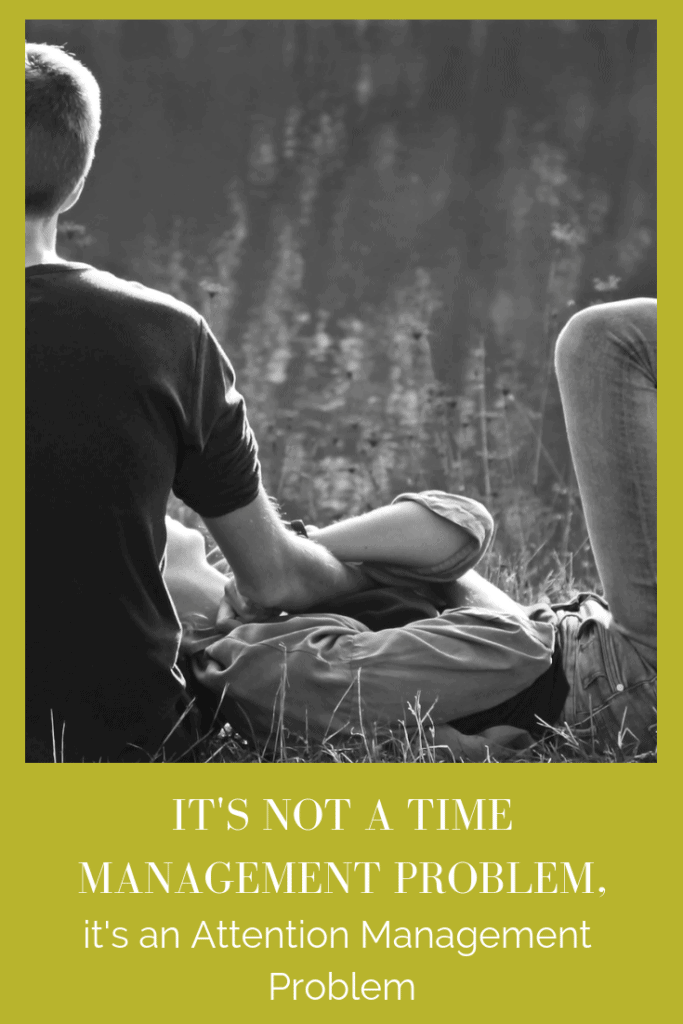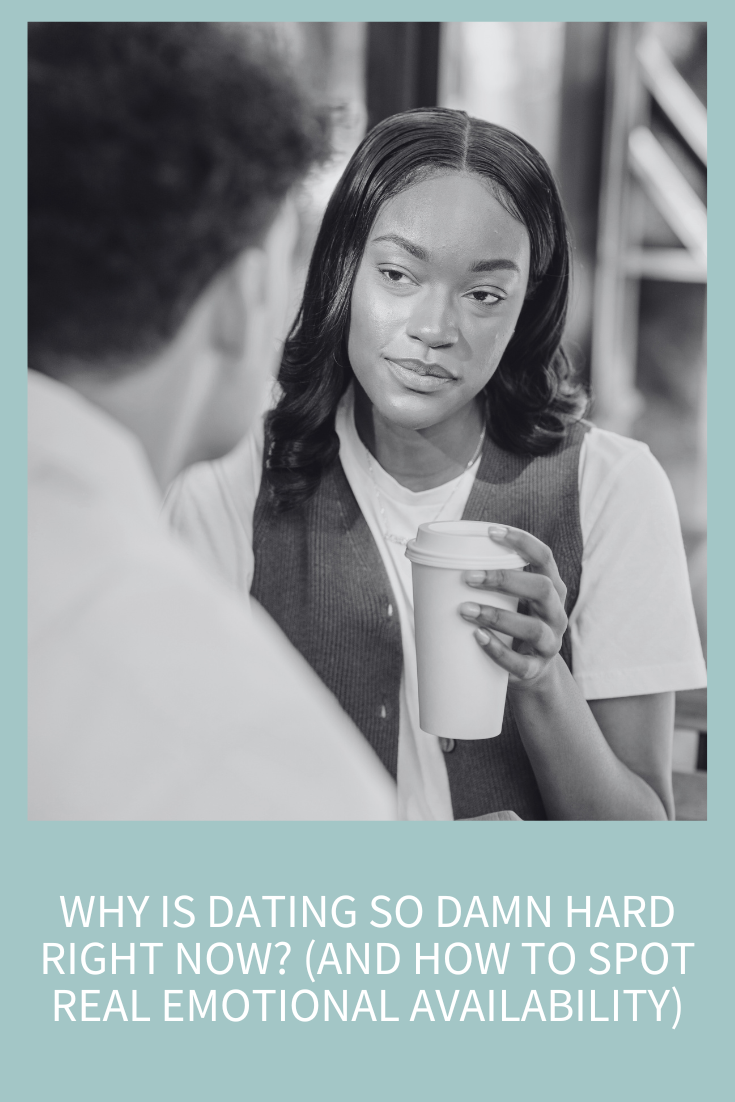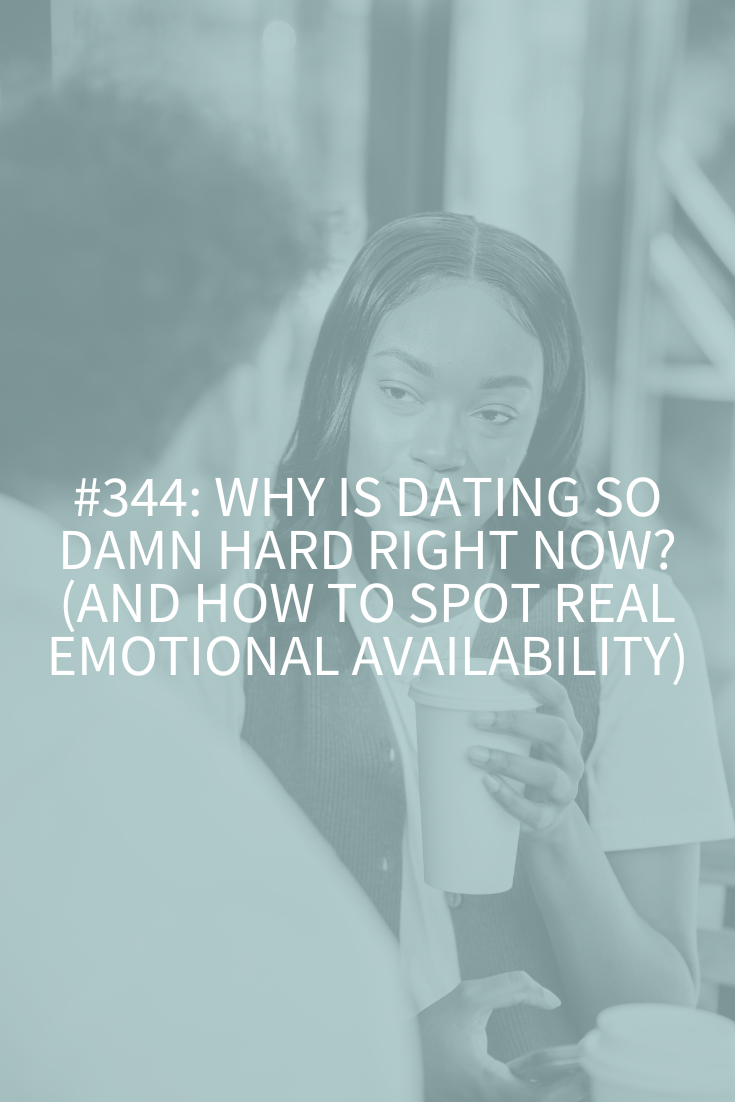
The key to having happy relationships is having the bandwidth to deal with them! If you’re feeling super busy or overwhelmed in your life and like your plate is already VERY full, the thought of adding couples’ therapy, time with your partner, or reading the latest book, can feel like one more thing you just can’t take on. In fact, so many couples think they’ve failed at couples counseling when the real issue is that they didn’t set themselves up for success in the first place!
In the end, learning to focus your attention is the key to feeling more efficient and less burnt out. And you can’t do that if you’re not aware of what you’re unknowingly doing that’s undermining your efforts. Believe it or not, your smartphone and similar electronics are one of the big reasons why it’s so difficult to get a handle on your day, your relationship and your time.
So, let me ask you this, “If you hit the snooze button five times, then ate a donut, smoked a cigarette and drank a bunch of coffee, would you expect to feel energized, enthusiastic, and ready to kick ass in your day?” No, of course not. Well, feeding your brain social media and emails first thing is similar to this. The problem is that, instead of making you chubby and lazy, looking at social media and emails first thing wires your brain for distraction which leads to unhappiness, overwhelm, frustration, resentment and anxiety.
Distraction is the Enemy
Distraction is your enemy and you need to treat it like one. Being on your phone and similar electronics is distracting you from your life in four big ways:
- It kills your ability to be present. You ruminate on the past (depression) or worry about the future (anxiety). You are literally missing out on your real life when you’re on your phone.
- It leads to dopamine surges. With every notification, like, follow, email check, instant message, or match on a dating app, you get a hit of dopamine. Your brain drives for dopamine, so it’s motivated to do all these things over and over again. The problem is that the satisfaction doesn’t last when you get these quick dopamine surges, so you keep going back for more and more. Your technology ends up controlling you, instead of you controlling your technology. You literally become a slave to your phone and crave it when it’s not there.
- Browsing the internet and social media also cause excessive comparison. We start comparing our lives to other peoples’ lives, but people select, collect, and present very specific parts of their lives. You’re not seeing them – you’re seeing the very best of them and who they want you to see. So, you end up comparing yourself to something that’s not real. Or maybe you’re trolling the internet looking at the perfect beach house you can’t afford or scrolling through some designer site and looking enviously at all the latest fashions you can’t have. Again, all the wishing, wanting and comparing is undermining your present life.
- Lastly, your phone and all this distraction prevents connection. Research shows that your social relationships are one of the greatest predictors of your happiness, and distraction gets in the way of your ability to connect with others.
Decisions
What you might not realize is that you’re making decisions a lot when you’re on your phone. Should I like this post? Should I comment or share? Should I read this article right now or wait? Should I look at my email? Should I answer this email now? If so, what should I say? Should I buy this sweater I’m looking at? You get the idea. There are literally hundreds of decisions (if not thousands) added to your day.
You’re actually making about 16,000 decisions per day (just 300 on what you eat)!
- Every time you click on, read, or comment on an article you make a decision
- Every time you like, reply to, or write a Facebook status update you make a decision
- Every time you read, reply to or write an email you make a decision
- Every time you browse and buy something online you make a decision
- Every time you scroll through the queue on Netflix you make a decision
This all adds up to something called decision fatigue. You make your best decisions first thing in the day. As the day goes on, you get worn down and will often make the easiest decision (which is often not the best for you). You’ve had this when you’re at the end of your day trying to decide what to have for dinner. You often end up either having difficulty making this decision (it feels like a big chore) or you make poor decisions and eat food you shouldn’t.
There was a famous study done by Shai Danziger and Liora Avnaim-Pesso of Ben Gurion University and Johnathan Levav of Columbia University showing how impactful decision fatigue can be. They studied factors affecting the probability that prisoners who were going before a judge for a parole hearing would be set free.
After analyzing judge rulings they found that when it was time to decide if a prisoner should be granted parole, it wasn’t the crime committed, the length of the sentence, or the ethnicity of the offender that determined whether they’d get parole or not. It was actually the time of day that the prisoner stood in front of the judge that held the most sway.
The prisoners who appeared later in the day were less likely to be released on parole than those who were seen in the morning. The judges were experiencing decision fatigue. The mental work required to rule on case after case all day wore each judge down, weakening their decision-making ability.
“This resulted in quick decisions that would make it easier for the judge at that moment, which was to deny parole to the prisoners appearing before them. Rather than agonizing over decisions, the judges would typically ease their mental strain by resisting change and keeping the prisoners locked up.”
You Consume Decisions
All of these decisions can really be looked at as consuming. When you’re looking at social media, emails, and all things internet, you’re consuming.
Every day your consumption diet likely includes any of the following:
- Articles on web sites
- Emails
- Status updates
- Netflix/Youtube/Hulu
- Podcasts
- Online Shopping
When you look at your phone or electronics early in the day it’s especially damaging because consuming media in the morning scatters your focus and damages your ability to sustain attention on anything later in the day. Ultimately, it prevents you from being able to get into any kind of flow state. You know what a flow state or being in the zone feels like. It’s when you’re fully immersed in something and you get that feeling of energy and focus in whatever you’re doing. It’s your sweet spot. When you have frequent interruptions your thoughts get scrambled, your memory is weakened, and you end up feeling tense and anxious, even if you don’t realize it.
Marc Manson, the author of The Subtle Art of Not Giving A F%#k says it best: “When we turn our devices on first thing in the morning, we get bombarded with inputs. It’s like drinking from a firehose of information that keeps shifting our attention from one stimulus to another, each providing a hit of dopamine, that keeps us craving more. It’s the digital equivalent of snorting a few lines of cocaine when you wake up.”
Attention Residue
All this excessive consumption results in multitasking and something called attention residue. You see, no one can multitask really because you need to stop thinking about one task in order to fully transition your attention and perform well on another. But the research shows that it’s difficult to transition your attention away from an unfinished task and your performance on the next task actually suffers because part of you is still thinking about the other thing you didn’t finish!
In the end, you end up with attention residue. This attention residue shows up in lots of ways. If you try to do something like sit and read a book after your attention has been jumping around for most the day, it’s hard to stay focused. You might find it difficult to stick with a project or paper you’re working on. You might find yourself being consistently forgetful or having trouble even staying on a small task (have you ever gone into the supermarket for two specific items but left with a bag full of groceries and at least one of those items missing?!)?!
You’re wearing down your willpower with consumption habits all day long and this leads to an inability to resist urges and cravings. So, it’s not only hard to avoid certain foods, you might also find it extremely difficult to get motivated to do things you don’t like such as hitting the gym, cleaning out that closet, or getting a project done. You also might find it difficult to muster the energy to do fun things like meet your friends out for dinner on a Thursday night.
Goal Interference
In their amazing book, The Distracted Mind: Ancient Brains in a High Tech World, authors Adam Gazzaley and Larry Rosen talk about something called goal interference.
Goal interference happens when you decide to accomplish a specific goal like walk into the other room to get your glasses, drive your car, finish making dinner or reading a chapter in that new self-help book you bought. But something happens that stops you from completing that goal. This can be something internally generated (your wandering thoughts, anxieties, worries, list-making, or annoyances you’re remembering) or something external (the alert on your phone, stepping on a Lego that your kid left out, an ambulance siren, people speaking at the table next to you at a restaurant, or that woman walking by with the wrong sized bra – or is that just me?!).
The authors talk about two categories of goal interference:
- Distractions (mind wandering – which is negative most of the time)
- Interruptions (this is basically any time you try to multi-task)
The more complex a system is, (like humans), the more complex our goals are. For example, your goals every day are much more complex than your dog’s goals. Here’s the kicker: The more complex the goals, the more susceptible a system is to interference. That’s you. Humans are super susceptible to interference: to distractions and interruptions.
Cal Newport who wrote, Deep Work: Rules for Focused Success in a Distracted World says, “Both our personal and professional lives are increasingly built around these sources of distraction. From a cognitive perspective, that’s like being an athlete who smokes.”
Specific Tips and Strategies:
Attention Management is a skill, and like any skill, you need to practice. So, here are my top curated tips and strategies for becoming an attention management ninja!
- Start your day without electronics, at least for the first one to two hours.
- Avoid multitasking or task switching. Multitasking not only diminishes your productivity, it damages your attention span. Unfortunately, most people count on willpower to avoid multitasking, but your environment will always be stronger than your willpower.
- Have true downtime. This means no smartphone activity. The unconscious mind does a lot of activity during down time. This is why you get “aha” moments when you’re in the shower or walking the dog.
- Plan your day the night before. Your day doesn’t start when your alarm goes off, it starts when you set it and get to bed the night before. When you plan your days the night before, you not only increase productivity, you also avoid decision fatigue and preserve your willpower. Not all hours of the day are created equal. Your attention span is going to be highest during certain parts of the day, so spend the first hour of the day on things that are most important to you.
- Say “no” more often. If it’s not aligned with your central priorities, just say no!!
- Your daily habits are the foundation on which your life is built. Don’t underestimate the impact of the little things you do repeatedly. They’re the catalyst for the most significant change that occurs in your life.
- Get rid of the toxic people in your life. Treat them like other things you “consume.” If potato chips and brownies are making you chubby, you wouldn’t keep them lying around the house…
- My last general tip is about something called the attention currency paradox. I apologize because this is not my idea, but I don’t remember where I read this, but I loved it, so here you go!
I want you to imagine your attention as a currency. Throughout the day you can spend it on things that are expensive and things that are cheap. Here’s what’s interesting. Things like reading, writing, any kind of deep work, and other meaningful activities require more of your attention units, but actually cost you less. They’re inexpensive; they’re cheap. On the flip side, however, you’ve got shallow work like updating your FB status or uploading pictures to Instagram. These activities require far less of your attention, but they cost you more of it. They lead to that attention residue I mentioned earlier and set you up for having a short and inattentive attention span. They’re expensive!
So, whatever requires less of your attention costs more in terms of cognitive benefit, and what requires more of your attention costs you less! I want you to examine each day from a cost-benefit analysis. Are you spending the majority of your time on the things that require more attention, but cost you less (playing with your kids, reading a book, finishing that project, focusing on your workout) or are you spending more time on the stuff that doesn’t take much attention but is expensive in the end? (Things like spending time on social media, playing video games and watching three-minute YouTube videos).
Those are some general things to keep in mind, but I want to give you some specific mindful media consumption tips too that I’ve gathered from the literature:
- Treat the information you consume like the food you put into your body. How much of it is junk or empty calories?
- Setup a separate email address for newsletters or other inspirational things that come your way. This way you can read them when you’re ready.
- Use Inbox Pause. This literally pauses email for whatever period of time you set. So, if you pause the inbox until 10:00am each day, you’ll be able to batch your email and do it all at once.
- Use tools like Heyfocus, Freedom, and Rescue Time to block distracting sites. Do this whenever you need to be super productive and focused. If you block distracting web sites for even one-hour blocks each day, you’ll be amazed at how much more productive you’ll be!
- Keep a minimalist attitude about your desktop or iPhone home screen. Electronic desktops, like physical ones, often get cluttered with all sorts of crap that we download or keep hanging around. When you log on there are all these things competing for your attention (most of which you probably don’t need immediate access to anyway). If you download a tool like HiddenMe, you can hide all the icons on your desktop.
Right now, decide on one thing you’re going to do TODAY to gain more attention management in your life. I’d love to hear about it in the comments below!
Resources and Links:
- Podcast 003: Why There Aren’t 24 Hours in a Day
- Study about decision fatigue with judges
- The Distracted Mind
- Cal Newport’s book, Deep Work






